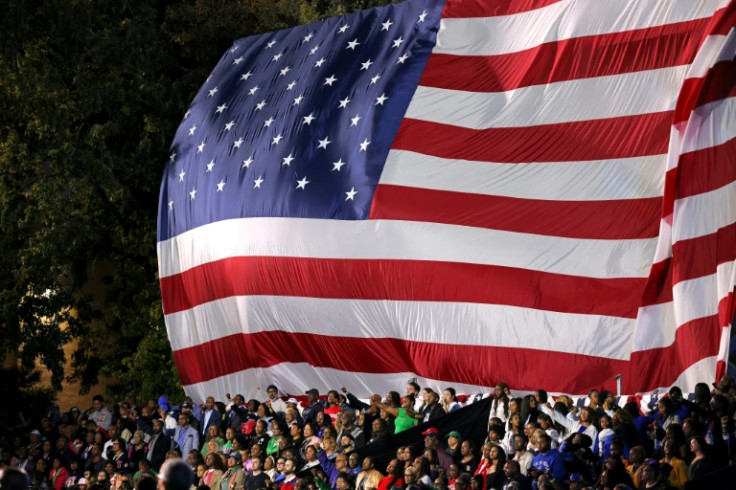Trump's Election Executive Order Under Fire As Democrats, Nonprofits Launch Legal Battle

President Donald Trump's recent executive order aimed at overhauling the U.S. election system is facing legal hurdles, with the Democratic National Committee (DNC) and two nonprofit organizations filing lawsuits on Monday, arguing it is unconstitutional.
The first lawsuit was filed by the Campaign Legal Center and the State Democracy Defenders Action (SDDA) Fund. Later that day, the DNC, the Democratic Governors Association, and leaders from both the Senate and House Democratic parties followed with their own legal complaint.
Both lawsuits were submitted to the U.S. District Court for the District of Columbia, requesting that the court block Trump's executive order and declare it illegal, Associated Press reported.
..."By forcing people to jump through unnecessary and costly hoops just to register, the SAVE Act would shut out millions of Americans—especially Black, Brown, and immigrant voters, as well as rural, elderly, disabled, and low-income communities," Susan Corke, Executive Director of SDDA, said in a statement.
"This bill is not about protecting the American voting process–it's about MAGA Republicans wanting to choose their voters. Disqualifying the use of commonly held IDs like driver's licenses, military IDs, and Tribal IDs unless accompanied by burdensome proof of citizenship paperwork, they are deliberately rigging the system to silence our voices and seize power for themselves," Corke added.
The DNC's lawsuit claims that Trump overstepped his authority with the Mar. 25 executive order. The order requires voters to prove U.S. citizenship and prevents states from counting mail-in ballots received after Election Day. It also threatens to withhold federal funding from states that don't comply with these changes.
"The Executive Order seeks to impose radical changes on how Americans register to vote, cast a ballot, and participate in our democracy—all of which threaten to disenfranchise lawful voters and none of which is legal," the lawsuit states.
Prominent Democratic figures, including Senator Chuck Schumer and Representative Hakeem Jeffries, are listed as plaintiffs in the DNC's lawsuit, reported Reuters.
Legal Experts Claim Violation Of Rights
Critics argue that parts of the order, like requiring proof of citizenship for voter registration and imposing stricter deadlines for ballots, could violate the U.S. Constitution.
Legal experts also note that the executive order claims powers the president does not have over independent agencies, such as the U.S. Election Assistance Commission. This commission is responsible for setting voting system guidelines and overseeing the federal voter registration form.
The lawsuits also raise concerns about voter disenfranchisement. The nonprofit lawsuit, which were filed on behalf of three groups — the League of United Latin American Citizens, the Secure Families Initiative, and the Arizona Students' Association — argue that Trump's order could harm their efforts to support voters.
In addition, the DNC's lawsuit points out that the Elon Musk-led Department of Government Efficiency (DOGE), a government agency known for its cost-cutting measures, is tasked with cross-referencing federal data with state voter lists. The DNC claims this could violate privacy rights and lead to voter harassment.
Constitutional Issues Raised
Both lawsuits highlight the Constitution's "Elections Clause," which gives states the power to decide the "times, places, and manner" of elections. It also grants Congress the authority to make changes to election laws but does not give the president any direct control over election administration.
According to Danielle Lang, senior director of voting rights at the D.C.-based Campaign Legal Center, the executive order is an "unconstitutional executive overreach."
"The Constitution is clear: States set their own rules of the road when it comes to elections, and only Congress has the power to override these laws with respect to federal elections," Lang argued.
Broader Debate
The lawsuits come as Congress is considering legislation that would require proof of citizenship for voter registration. Additionally, Trump has hinted at further actions related to elections in the upcoming weeks.
Earlier, Trump had expressed doubts about the U.S. electoral system and has repeatedly made false claims about widespread fraud in the 2020 election, which he lost to President Joe Biden. Trump and his Republican supporters have also made baseless accusations of non-citizen voting, which is illegal and extremely rare.
Originally published on IBTimes
© Copyright IBTimes 2025. All rights reserved.





















